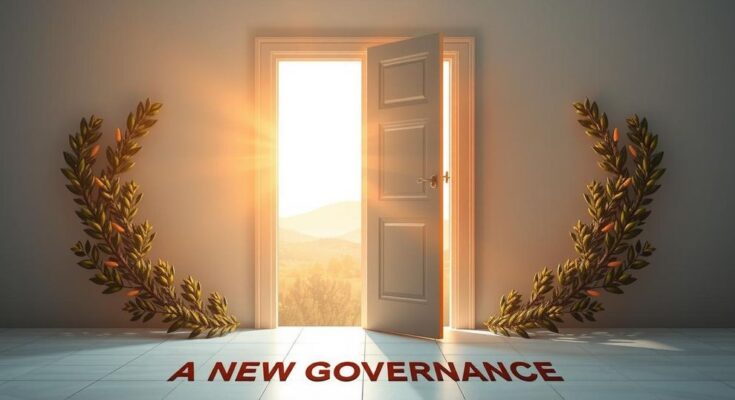Lebanon’s new Prime Minister, Nawaf Salam, has formed the first complete cabinet since 2022, addressing ongoing economic crises and post-war recovery efforts. His government, comprising an equal number of Christian and Muslim ministers, reflects a shift away from Hezbollah-affiliated leaders. Salam pledges to implement economic and judicial reforms while strengthening state authority to regulate arms, particularly those of Hezbollah.
On Saturday, Lebanon’s new Prime Minister, Nawaf Salam, established the nation’s first fully operational government since 2022. Following the resignation of the previous caretaker government, President Joseph Aoun confirmed his approval and signed the decree to formalize Salam’s cabinet, comprised of 24 ministers equally representing Christian and Muslim sects. This comes during a critical period as Lebanon strives to reconstruct its war-impacted southern region and ensure stability along its borders after the recent conflict with Israel and Hezbollah.
The newly formed cabinet arrives amidst Lebanon’s ongoing economic crisis, which has persisted for six years, severely impacting its banks, crippling the electricity sector, and plunging many citizens into poverty. Prime Minister Salam, who has a diplomatic background and previously presided over the International Court of Justice, has committed to implementing judicial reforms and revitalizing the economy while fostering stability in a country that has been plagued by multifaceted crises for decades.
Although Hezbollah did not formally endorse Salam, there were discussions regarding Shiite Muslim representation within the government, reflecting Lebanon’s intricate power-sharing arrangements. Notably, the current administration signals a departure from previous leadership closely aligned with Hezbollah, as Beirut seeks to strengthen relations with Saudi Arabia and other Gulf states, apprehensive of Hezbollah’s increasing influence over the last decade.
The election of former army chief Aoun as president in early January concluded a lengthy political vacuum, representing a shift in political dynamics since he was not supported by Hezbollah or its allies. Both Aoun and Salam express a commitment to establishing the state’s authority to monopolize the use of arms, indirectly addressing the issue of Hezbollah’s armed presence in Lebanon.
The formation of a new government in Lebanon follows a protracted period of political instability, marked by the absence of a fully functional administration since 2022. Lebanon is facing a dire economic crisis, compounded by recent military conflicts, necessitating immediate political action and international relations strategy to address internal challenges and rebuild the nation. Salam’s government reflects a movement towards improvement in governance and reform as the country grapples with sectarian divides and the repercussions of Hezbollah’s influence on Lebanese politics.
The establishment of Prime Minister Nawaf Salam’s government denotes a significant step for Lebanon as it endeavors to overcome prolonged political stagnation and economic hardship. With a focus on reforming the judiciary and economic revitalization, the new cabinet represents a potential shift towards greater state authority and reduced sectarian tensions, particularly concerning Hezbollah’s political role in Lebanon. By enhancing ties with Gulf nations, Lebanon aims to navigate its way back to stability and security.
Original Source: www.hindustantimes.com




